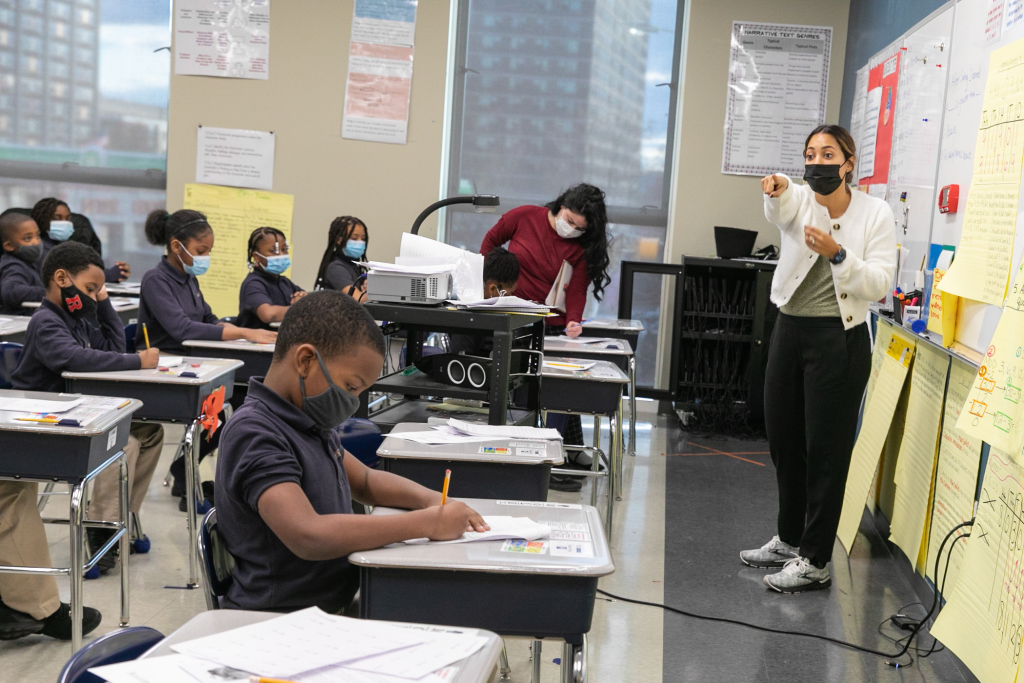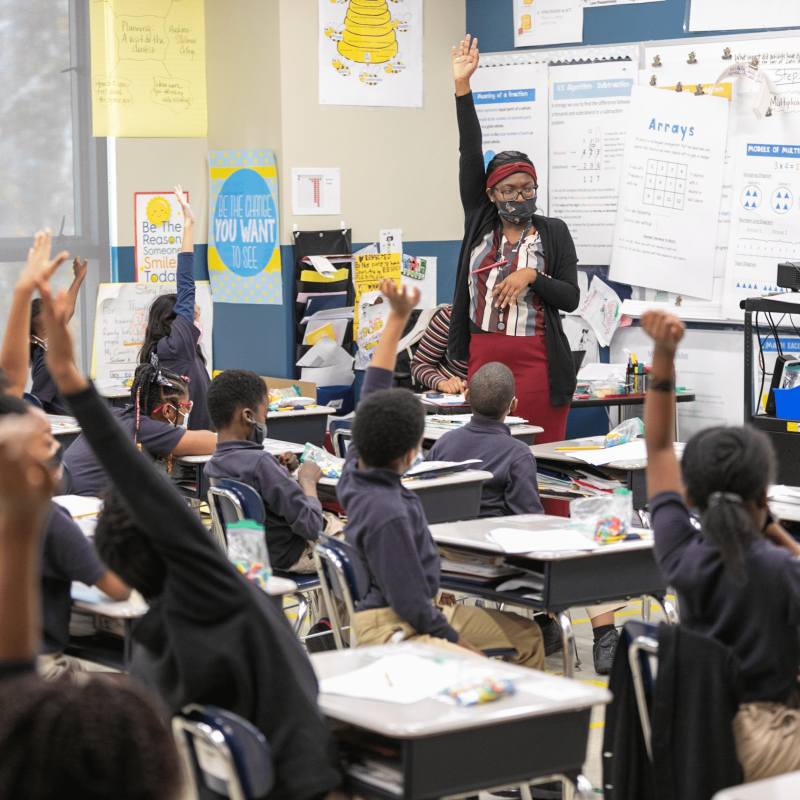By Brett Peiser

In his poem about caring “Why Bother?”, Sean Thomas Dougherty writes, “Because right now, there is someone out there with a wound in the exact shape of your words.”
As the co-CEO of a public charter school organization with 20,000 students and 1,700 teachers, I am acutely aware of the toll that the pandemic has taken on our students, families and staff. And every day, a new story tells us that teachers are either leaving the field or not joining in the first place, though those of us who’ve been in the profession for a long time think it’s an age-old problem only exacerbated by COVID.
To the teachers and would-be teachers who are on the fence, I have a message for you: Right now there are students out there with a wound the exact shape of your work.
For every teacher who has felt like giving up since the pandemic began, we see you. We acknowledge that you never imagined teaching with a mask on all day, covering for quarantining sick colleagues, under fear of falling ill yourself, and possibly even recovering from COVID yourself. Teaching has always been hard. Teaching over the past two-and-a-half years has been beyond hard.
And yet, there’s never been a more important time for you to do what you do. Across the country, students, particularly students from low-income communities, have lost so much in the pandemic — from family members who have gotten sick or passed, to the loss of important peer social connections, to years of academic progress. What kids have lost academically, socially and psychologically since March 2020 is almost unfathomable.
Against this backdrop of loss, teachers are — outside of a child’s family — among the people that can begin to rebuild a more normal existence and brighter future. They are quite possibly the people who, just by being there, can change their world.
The value of teachers is long established. Those of us who lead school districts and education organizations also need to be committed to push everyone to do more to inspire young people to become teachers.
That’s why when the federal government announced billions of dollars in Elementary and Secondary School Emergency Relief Fund grants for public schools, we asked our teachers to help us decide how to spend it. We created and administered more than 100 mini-grants and encouraged our teachers to dream big about what they would want to see in their school and how to serve students best. Hundreds of them applied to start new programs, take students on new experiences, and purchase items that we otherwise could never afford.
We also need to use this time to get serious about ensuring our students can see themselves in their teachers and school leaders — by making sure there is a strong pathway for young people of color to consider careers in education.
Over the past 10 years, my organization’s Summer Teaching Fellows program has shown us what happens when we catch young people in college, place them in classrooms with students and suddenly they get bit by the bug and want to teach.
Our Excellence Boys Charter School in Brooklyn is a perfect example of that. It is a K-4 and 5-8 school led by Morehouse College graduates Jaz Grant and Quinterrence Bell, respectively. We met Grant and Bell when they were rising college seniors and showed them what an impact they could have as teachers. They now lead schools as principals who are making a huge difference for students in Brooklyn, while simultaneously hiring and training a new generation of teachers.
We need more organizations to create these types of pipelines today so we’re not in the same predicament a decade from now.
Two decades ago, facing crushing teacher shortages at its schools, the city Department of Education launched the teaching fellows program. The subway ads read: “You remember your favorite teacher’s name. Who will remember yours?”
Thousands of mid-career professionals were inspired to quit their jobs and become teachers. We could use a restart of that program — and even a nationwide expansion. What we can’t do is throw our hands up and say all is lost. My co-CEO, Julie Jackson, often reminds us, “If not now, then when? If not us, then who?”
COVID has taught us many things, not the least of which is the impossibility of predicting the future. But having been an educator now for more than 30 years, while there is still more to endure, better days in school will return and it is our teachers and school leaders who will make sure students are on the path to a life of opportunity, achievement, and happiness.
And they will remember your name.
**

